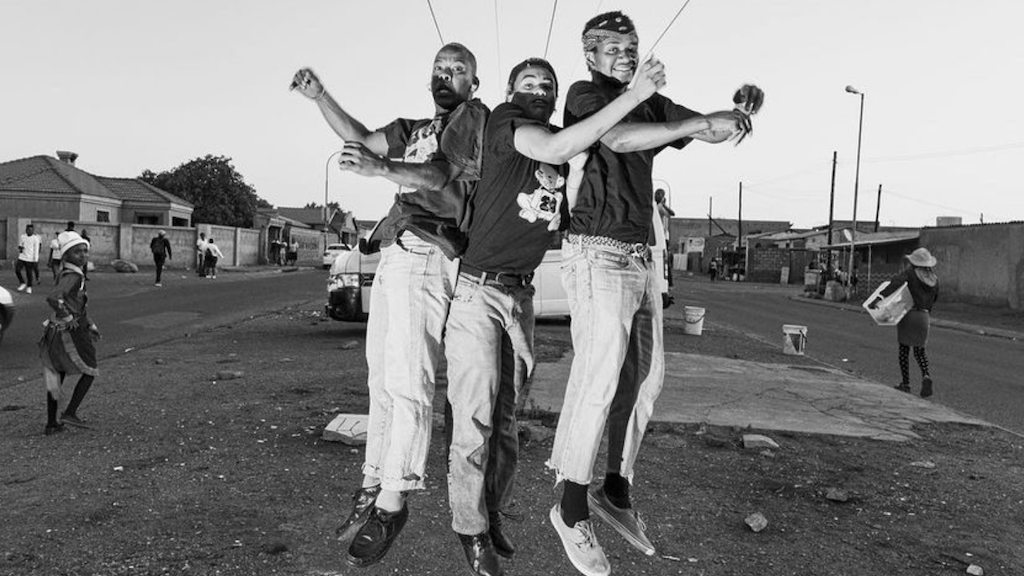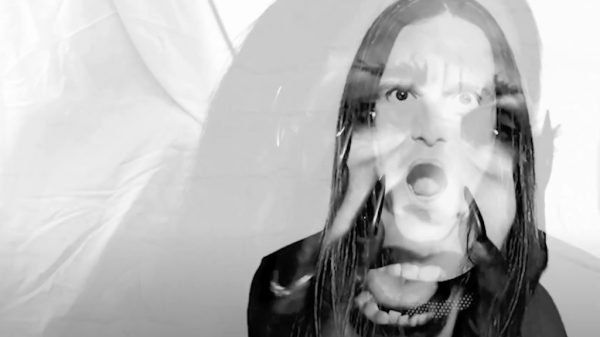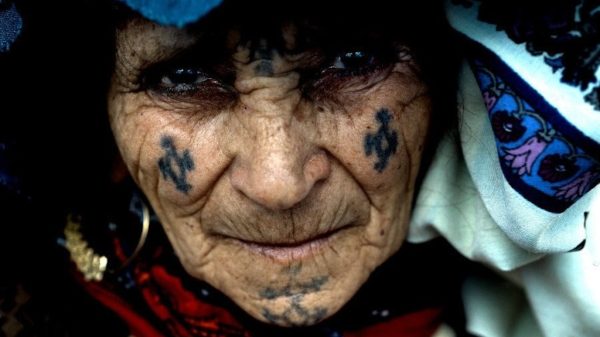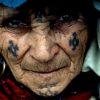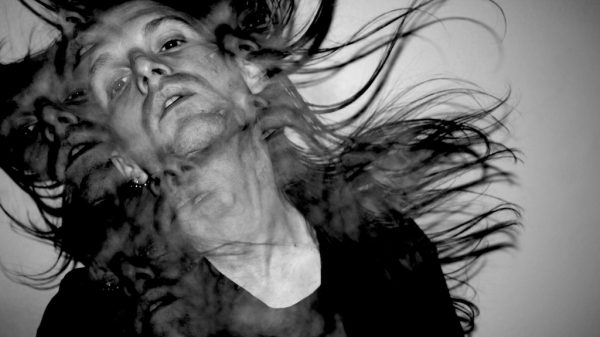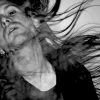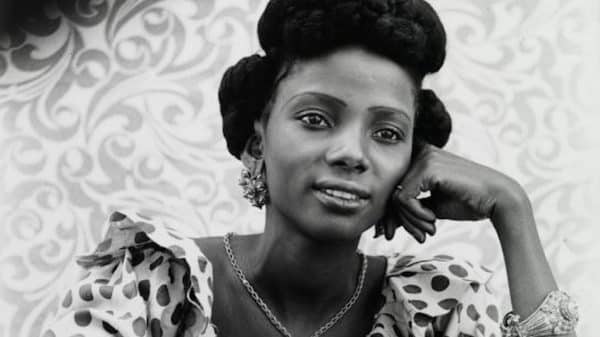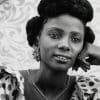Text via Damon Way (@factbrand)
DIY and the subversive energy that follows is a state of mind. Music and skateboarding subcultures exemplify this best, using it as a means to establish social identity and the tribal flags that reinforce it. In the 1980s, the punk scene added an another layer by injecting political activism and social justice into the message, as seen with bands like Crass, Dead Kennedys, and 7 Seconds.
When I first saw images of this little-known skate and punk scene thriving in Soweto, South Africa—published in Rolling Stone & photographed by Karabo Mooki—I felt the same raw energy of the 1980s, but re-contextualized within a younger generation, pushing back against their own distinct struggles in the most expressive way possible, despite operating from a distance to the past and present zeitgeist of the West.
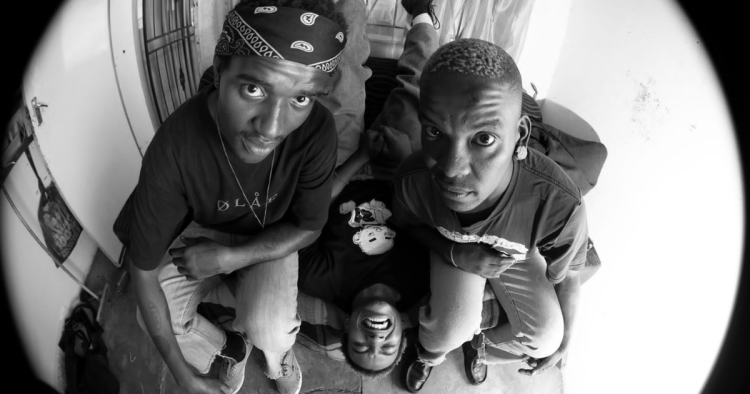
At the sharp tip of this Soweto punk movement is a band called Twenty One Children, who embody a unique blend of cultural influences and personal experiences. Growing up immersed in genres like gospel, blues, R&B, jazz, kwaito, and hip hop, the band’s members—Thula (guitar), Jazz (drums), and Abdula (vocals)—found their way into the underground alternative scene through college radio stations. This exposure shaped their sound, drawing from underground music rather than mainstream influences.
While South Africa’s punk scene remains largely underground, especially in cities like Johannesburg (known as Hate City), Pretoria, Durban, and Cape Town, it’s still vibrant. Twenty One Children plays a crucial role in keeping the scene alive, hosting DIY shows at skateparks, dive bars, and house parties. Along with other bands, they’ve built a semi-tour circuit across these cities, ensuring punk continues to thrive on their own terms, even if it’s outside the mainstream.
Take us back to your childhood—what music did you hear around your home, booming out of the cars in your hood, or your headphones?
Growing up, our houses were filled with gospel, blues, and R&B, too, as well as Jazz. Kwaito and Hip Hop was trending among the young, too… so there was no hiding from that. Cars would just bump house music endlessly…
The Indestructible Beat of Soweto is one of our favorite records of all time at CVLT Nation HQ. Does that record have significance for y’all as young musicians coming out of Soweto decades later?
Not at all. The record is legendary and popular, but it had no influence on us whatsoever. It’s mostly public radio music. Both Thula (guitar) and Jazz (drums) grew up on the college radio stations, we got a good dose of underground alternative music there. Our singer Abdula was raised on conscious Hip Hop by his Pops.
What is the punk scene like in South Africa? Tell us about the DIY venues that are home to 21 Children.
There’s four main cities doing the most for punk. Pretoria, Durban, Cape Town, and Johannesburg (which is divided into hood punks and punks from suburbia). Also known as Hate City, Johannesburg is probably the fastest and most dangerous out of all the aforementioned cities. We punks have made separate but functional show-hosting conglomerates through skateparks, dive bars, and house parties, too. Punk is alive and well down here, but not as popular as the stuff on the radio. So we mostly have to do it ourselves. We’ve created a bit of a semi-tour-circuit through all these four main cities and so far, so good.
How has your family responded to y’all being punks, and are they into your music? Did y’all grow up in households that encouraged community activism and the DIY mindset?
Yeah. Our families are quite supportive. We generally introduced our families to punk rock and the DIY movements. They’re pretty proud of us all. Our youngest member, Abdula, is the only person with present parents at the moment and it’s good to see him making them and his siblings proud. While they were alive, both Jazz’s dad and Thula’s mom were very supportive of the band’s music. Jazz’s dad being a jazz musician himself and Thula’s mom, a Gospel Choir singer. They backed the band from its very inception until their final days on this earth.
In your Studio 31 performance you talk about the inspiration behind “There is No Time” and “Corner Knife and Bullet” being influenced by 70s/80s Soweto gangsters…can you tell us more about that history and how it influenced those two songs?
Thula’s uncle owns a tavern locally. It’s a poetic Mecca. A songwriters goldmine. People sit, drink, and tell stories all day through to the night. It’s like watching a history book unfold. Most of our songs are from firsthand experience, though. We have had a fair share of living between the 3 of us. Twenty One Children is 3 decades deep. Thula from the 80’s, Jazz from the 80’s, and Abdula’s from the 2000s. So that is analogue, digital, and in between all at once. What’s more funny is how well we gel amidst all our differences.
The fight against apartheid was a huge issue in the 1980s punk scenes in L.A. and S.F. Was it well known in South Africa that American punks had y’alls back? How does the fight for Black Liberation in South Africa shape what y’all create?
Our music is all about freedom. Freedom of movement, freedom of speech, freedom to live as you choose. That’s why we skate, too. We are all about free will. So long as you don’t harm others along the way. As for skating, you don’t need much explaining. So long as you have a board. We can ride. No matter your background, culture, sexuality, or skin tone. We like to keep it really classy here at Twenty One Children. All the children that back us are super diverse, but they all become one every time we hit the stage.
Your video for “Ice Cube” is so rad…tell us about this track and why you chose that infamous scene from Friday for the intro.
The song is about escaping everyday boredom. Hood innocence and growing up in the ghetto. We like storytelling and Ice Cube is one of our favorite storytellers. This song is a high five to him. We blended Friday, Boyz In The Hood, and his hit song “It Was A Good Day.” Thula is straight edge again, so we opted on switching the topic in the opening “peer pressure” scene with Smokey and Craig. We switched the subject to skateboarding instead of weed.
Tell us about three films that had a major impact on 21 Children’s worldview, and why.
Our personal history and backgrounds are too vast, so we can’t really pin that one down entirely. What we can do though is mention the three movies that found their way into Twenty One Children’s debut EP. That would be Friday, for reasons mentioned earlier… Warriors, which is also a title to one of our songs on the Ep… Lastly it would be A ClockWork Orange, which explains the all white attires on the “Corner Knife & Bullet” music video.
We’re living in crazy times, so what do you do to keep your Mental Health on point?
It’s really funny you mentioned that, because we started the band immediately after our guitarist’s second visit to the Loony Bin. At the time, our vocalist was working at an autistic school as a substitute teacher. Thula spent 21 days in a mental health facility, while Abdula was teaching 21 autistic kids in his class, and we jammed with Jazz a month later on the 21st February. This is how we came up with the name. Punk Rock is the main reason we are sane, alive, and well at this moment. That and skateboarding, too.
Outside of music, what other ways do you express yourself creatively?
All three of us really love drawing and painting. Pardon me… All Twenty One of us. Our places are always surrounded by the art we create from time to time.
Who are some of your peers in Soweto and/or South Africa that we should be checking out?
There’s a lot…we only hope to mention most of them. If we forgot you… Sorry. Please don’t be pissed: From Soweto there’s Automatic, Shameless, Aura Electric and Brain Drain. As for the rest of the country… Sisters, Black Lung, Mean x Girls, The Tazers, Mouse, Ruff Majik, Poster Boy, Lefokolodi, Shongololo, Scrubs, Buru Azeban, Zondo Commission, Cistamatic, Tough Guy, Sextape, Drumfish, Cosmic Fiend, Make Over, Pussy Haven, Necklace…. The rest of this list would be the people who have been doing this long before us like Reeburth, Fuzigish, Fokofpolisiekar, Wonderboom, Blk Jks, etcetera…. etcetera.
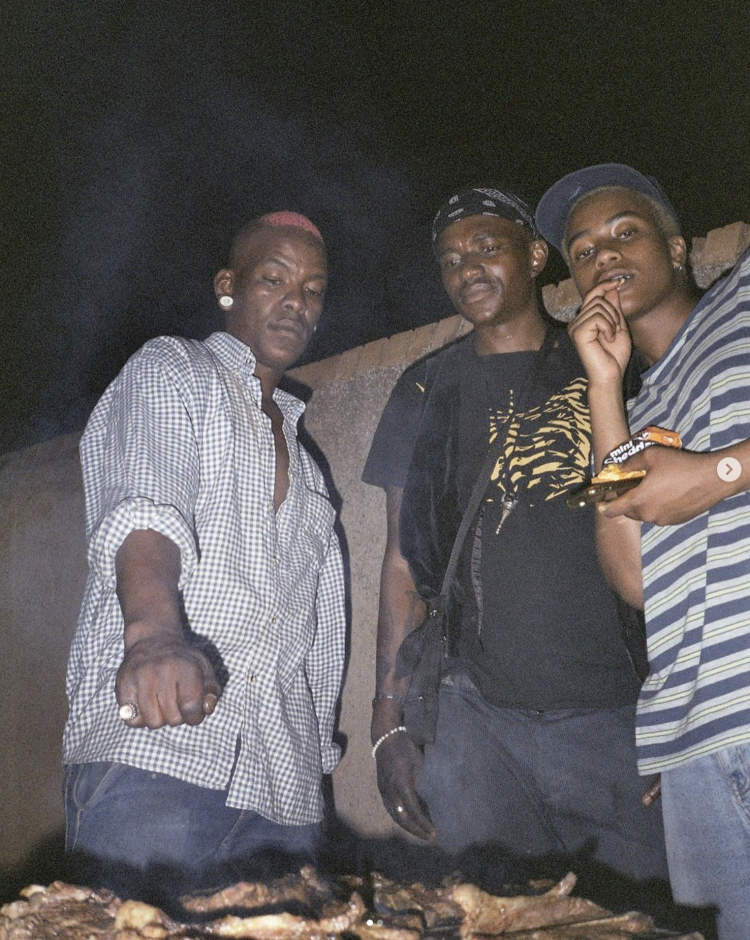
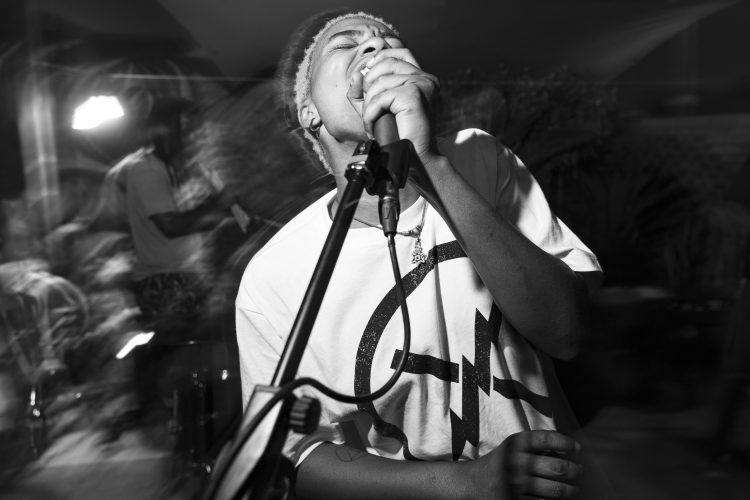
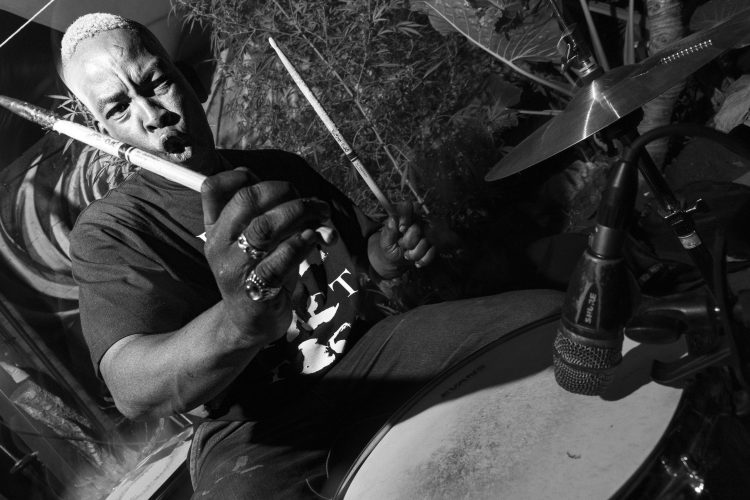
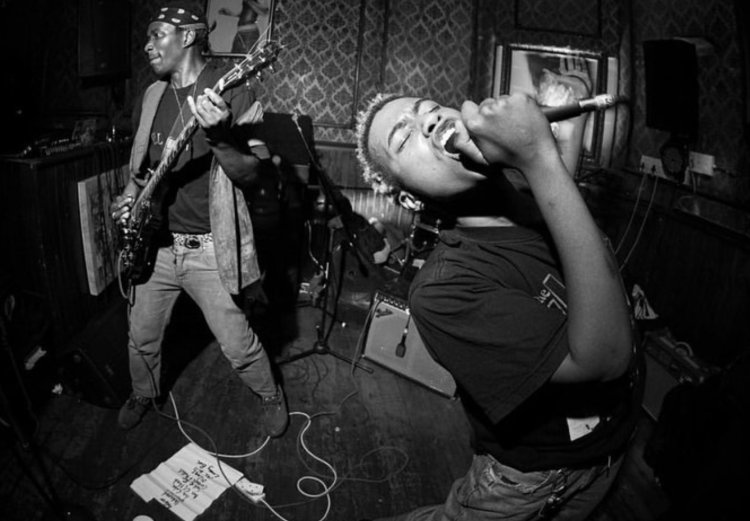
Photos: Karabo Mooki

